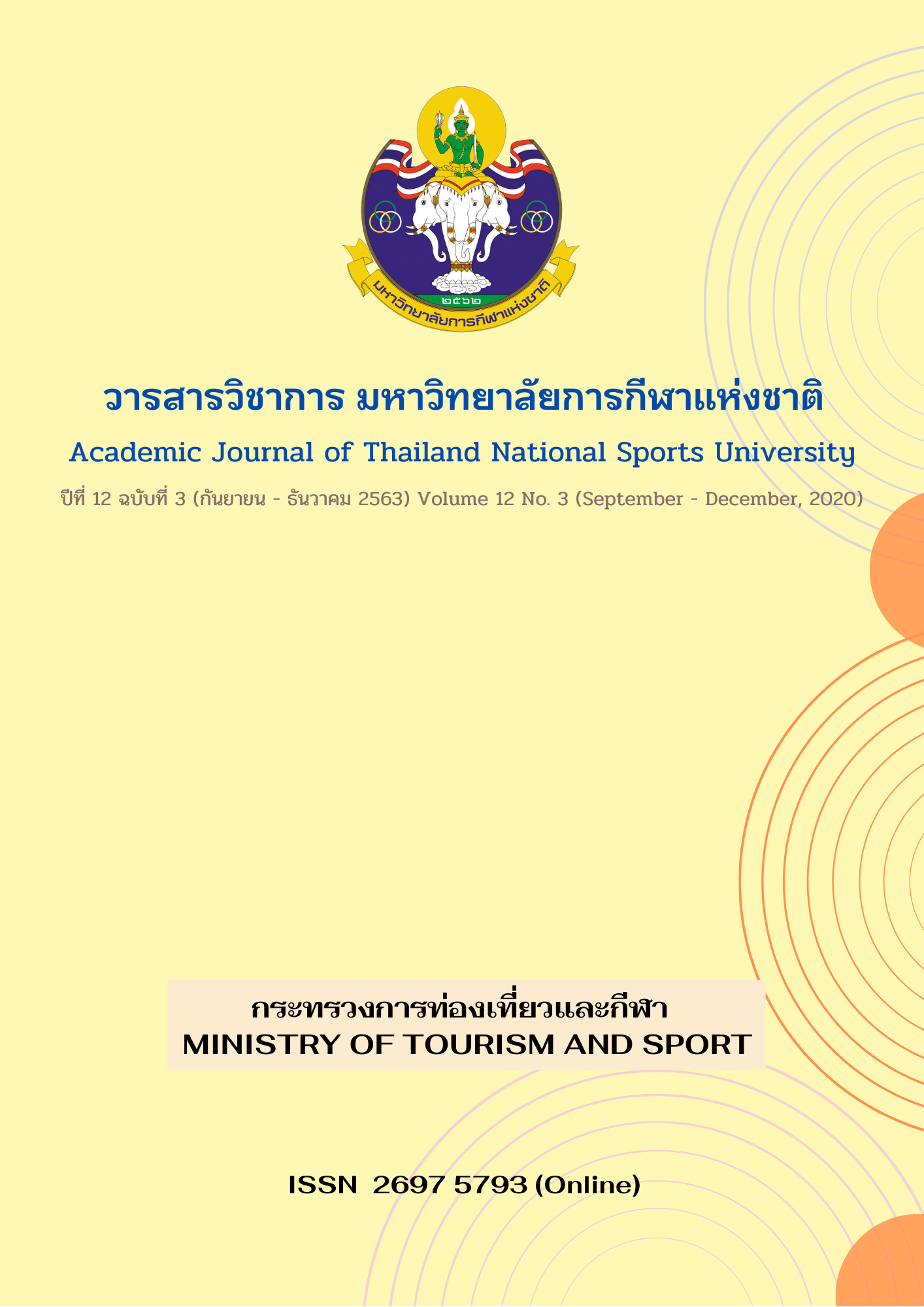MODEL OF COMPETENCY DEVELOPMENT IN TEST CONSTRUCTION INTEGRATING THE SUPERVISION PROCESS AND PARTICIPATORY ACTION RESEARCH OF PRIMARY SCHOOL TEACHERS
Main Article Content
Abstract
The objective of this study was to develop the model of competency development in test construction integrating the supervision process and participatory action research of primary school teachers. The implementation of the research and development model was divided into 4 steps: 1) Studying the competency in test construction of 985 primary school teachers; the structural validity by Confirmatory Factor Analysis in Multi-stage Random Sampling by questionnaire; 2) Developing and inspecting the research model by 17 experts; 3) Trying out the developed model in 38 primary school teachers working for schools under Primary Education Service Area Office 3; and 4) Evaluating and improving the developed model: The data were collected from a group of teacher supervisors, and it was evaluated through the use of the assessment questionnaire of model effectiveness and the focus group technique by 36 participants.
This study indicated that: 1) the primary school teachers had a high competency in test construction. The model was consistent with the empirical data (x2 = 1947.30, P-value = 0.00, x2-test = 0.00 x2/ df= 2.83, CFI= 0.99, GFI = 0.90, AGFI = 0.88, RMSEA = 0.047 and SRMR = 0.098); 2) the model development in test included 6 steps as follows: (1) Planning (2) Providing knowledge (3) Implementing (4) Providing feedbacks (5) Evaluating and (6) Supervising and giving a reinforcement called “PIDRER MODEL”; 3) The trying out showed that 31 teachers passed the set criteria and 7 teachers could not meet them. About 10 teachers were able to perform in an excellent level and 21 teachers performed at a high level; and 4) The results of evaluation and improvement of the model were found at a high level. The results of model improvement and development consisted of 8 steps: (1) planning, (2) providing knowledge, (3) implementing, (4) giving feedbacks, (5) suggesting, (6) supervising, (7) evaluating and (8) reporting called “PIDRCRER MODEL”.
Article Details
The published article is a copyright of the Academic Journal of Thailand National Sports University. The passage appeared in each article in this academic journal is a perspective of each author which is not related to the journal. Each author is required to be responsible for all components of his/her own article. If there are any mistakes, each author must be responsible for those mistakes on his/her own.
References
Anderson, L. W. & Krathwoht, D. R. (2001). A taxonomy for learning, teaching, and assessing: A revision of Bloom’s taxonomy of educational objectives. Boston, MA: Allyn & Bacon.
Chalom Chooyim. (2013). The development of teacher development model in constructing grade mathematic test. (Doctoral dissertation). Pibulsongkram Rajabhat University.
Chawal Prarattakul. (1964). Measurement techniques. Bangkok: Publisher of Aksorn Charoen Tat.
Creswell, J. W. (2002). Research design: Qualitative, quantitative and mixed methods Approaches. (2nd ed.). CA: Sage.
Fitz-Gibbon, C. T. (1987). How to design a program evaluation. Newbury Park: Sagh.
Hair, J. F., Black, W. C., Babin, B. J., & Anderson, R. E. (2010). Multivariate data analysis a global perspective. (7th ed.). New Jersey: Prentice Hall.
Kamolchanok Parkpoom. (2013). The development of the essential competency model for teachers in basic education schools to prepare for Asean community. (Doctoral dissertation). Silapakorn University.
Kemmis, S. & Mc Taggart, R. (1998). The action research planner. (3rd ed.). Victoria: Deakin University Press.
Kitpakorn Sakhon. (2014). A development model of educational measurement and evaluation
competency by using knowledge management process for small school teachers. (Doctoral dissertation). Nakhon Sawan Rajabhat University.
Metta Marwiang. (2014). The development of a model for mathematics classroom assessment: Collaborative assessment pyramid. (Doctoral dissertation). KhonKaen University.
Narong Teepprachai. (2014). The development of training package on test item analysis for teacher. Nonthaburi: Sukhothai Thammathirat University.
NIETH. (2016). Report of evaluation national test academic year 2015: Conclusion and recommendation for academic administration. Bangkok: Office of The Basic Education Commission.
OECD. (2018). Thai education situation on the world stage 2017/2018. Bangkok: Publisher of Prigwan Graphic.
Pinda Varasunun. (2011). Evaluation capacity building in test constrction. (Doctoral dissertation). Chulalongkorn University.
Sajee Jiraro. (2013). Development of teacher test item construction competency development model using teacher empowerment through action research process. (Doctoral dissertation). Chulalongkorn University.
Sangad Utranan. (1987). The supervision of the study of the theory of practice. (2nd ed.). Bangkok: Publisher of Mit Siam.
Sirichai Kanjanawasi. (2013). Classical test theory. (7th ed.). Bangkok: Publisher of Chulalongkorn University.
Stufflebeam, D. L. (1991). The personnel evaluation standards: How to assess systems for evaluating educators. CA: Sage.
Tiwat Maneechote. (2011). A development of competencies indicators and in strument of educational measurement and evaluations for basic education teacher. (Doctoral dissertation). Phranakhon Rajabhat University.


